
Dartmoor is the only place in England where the public are officially allowed to wild camp; but could this be under threat? John Bainbridge, who writes and blogs extensively on access issues in England, is worried by recent proposals from Dartmoor National Park to reduce the areas in which people can exercise their statutory right to camp on the moor. This is a draconian and misguided response, he says, to recent problems with anti social camping. And it could be just the beginning of "something far nastier".
- You can read the counter-argument from Dartmoor National Park Authority here:
- The proposals are out for public consultation until 1st November. You can have your say here
Unlike in Scotland, there is no legal right to camp in most of England and Wales. The only real exception to that is in the Dartmoor National Park, where wild camping (with certain minor restrictions) is allowed by law under the Dartmoor Commons Act 1985. The Commons Act also granted Dartmoor a legal Right to Roam, long before the Countryside and Rights of Way Act (CRoW) in 2001.
But now the Dartmoor National Park Authority (DNPA) is trying to roll back the areas of Dartmoor where wild camping is allowed. At its last meeting the DNPA published a map showing areas where they wish to change the bylaws prohibiting any form of camping. The idea is buried in a recent report (page 48).
The excuse they are using is that a minority of people, during the pandemic, came to Dartmoor and made a mess, dropped litter, started fires and cut down trees. Actions which, I'm sure, we would all heartily condemn.
So it would seem to be the case that, because a small minority misbehaved, the majority of responsible wild campers are to be punished. Rather like banning everyone from driving cars because a small minority drink and drive. It's worth noting that anti social camping, litter and fires have been a problem across the UK during the pandemic. Dartmoor's Right to Roam cannot be blamed for the mess people have been leaving in the Peak or the Lake District, where no right to camp exists.
There are of course other forms of legislation that the DNPA could use to deal with troublemakers who are caught making a mess. They might be charged under the existing bylaws or even wider national legislation. After all, are they going to restrict ramblers using the Right to Roam provisions of the Act because a small minority of Dartmoor visitors drop litter? Well – the jury is still out on that one.
The proposed bylaw changes include this:
"No person shall on the Access Land participate or engage in any activity which comprises over 50 people on foot, or 30 horses or cyclists, unless he is authorised to do so in pursuance of an agreement with the Authority and the owner of the land."
This would directly hit larger rambling groups and effectively ban protest walks in the National Park. I've written about that here.
I believe the DNPA is using the misbehaviour of a minority to attack the provisions of the Dartmoor Commons Act because – in their hearts – they loathe the thought that such provisions exist at all.
I've spent some fifty years campaigning for Dartmoor. In that time, I spent nine years as chief executive of the Dartmoor Preservation Association, many years as a Dartmoor representative of the Ramblers Association, been a council member of the Council (now Campaign) for National Parks, a committee member of The Two Moors Way Association and worked with the DNPA on the Dartmoor Action Group Committee. I spent many years as a Dartmoor guide and have written books and articles about the Moor.
I have been involved in some of the great battles involving threats to Dartmoor.
A similar argument has rumbled on for years in Loch Lomond and the Trossachs National Park, the only part of Scotland in which wild camping is legally restricted by local bylaws. Several years after they were introduced, these measures have yet to find universal approval:
The DNPA's attack on wild campers comes at a worrying time – the British government is pushing through its policing bill, which could make criminals of anyone in other parts of the country who free roams or tries to put up a tent as they have done by tradition for generations.
I suspect the DNPA know they are on dodgy ground. A few months ago, they were all for making wild camping illegal at a greater distance from roads than the present law allows. When it was pointed out that this would ban camping from some of the most popular spots on the Moor, they retreated.
Their new idea is to list areas which will be excluded under new bylaws. Many of these are equally popular wild camping spots.
In their recently published document, the DNPA claims to have consulted. Well, they've certainly consulted with the landowning lobby and other elements of the Dartmoor Establishment.
But what they have NOT done is consulted with wild campers themselves to much of a degree.
No doubt embarrassed by such lack of consultation, they have now said that they will put the matter out to consultation before making a final decision. This to me has all the makings of a PR exercise. Given the DNPA is the judge and jury in its own case, are they likely to jettison their considered plans, however many objections come in?
The DNPA, no better than a local authority in reality, is giving itself the powers to overturn the intentions of the British Parliament who democratically decreed that the Dartmoor Commons Act should include a Right to Roam and to allow wild camping.
What is more, the restricted areas for camping already listed could be just the beginning of something far nastier. The park authority is giving itself the powers under the new bylaws to increase these areas at any time, without further consultation beyond holding a single public meeting, which can be just a regular meeting of the DNPA to which the public might sit in the audience or be allowed to speak at their discretion.
As I've said above I appreciate the difficulties the DNPA and its rangers had during the pandemic. I share their horror at the bad behaviour of the few. But to make life more difficult for the vast and well-behaved majority is not the answer.
Use existing legislation to deal with troublemakers, and don't pick on the law-abiding. Encourage responsible wild camping and engage more with experienced wild campers in spreading good practise and teaching newcomers to camping how to do it properly.
In other words, act more in line with the intentions of the campaigners and politicians who created National Parks, and throw aside draconian and knee-jerk reactions to temporary problems.
After all, bad campers of the sort we saw out during the pandemic will ignore the bylaws anyway. Only the well-behaved will suffer.
- You can comment on the Camping Bylaw Changes by writing to the National Park at hq@dartmoor.gov.uk or by mail to Dartmoor National Park Authority, Parke, Bovey Tracey, Devon
- This article has been reproduced from John Bainbridge's blog Walk the Old Ways


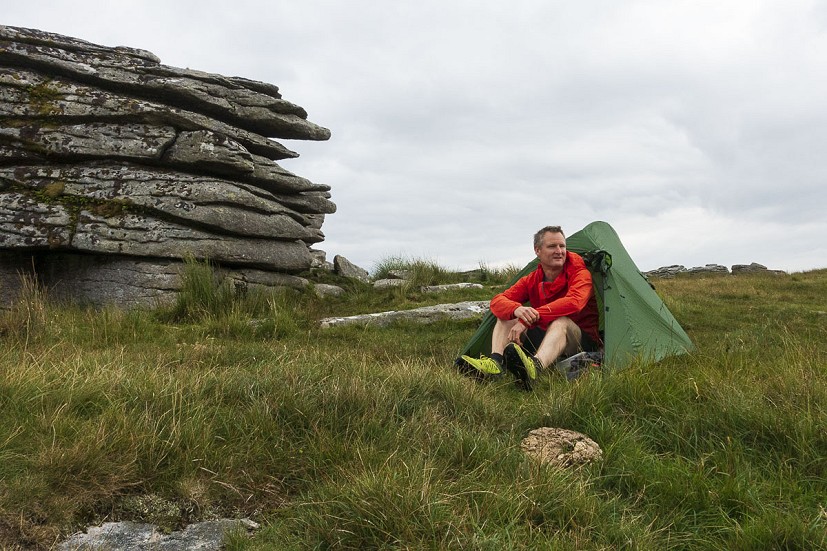



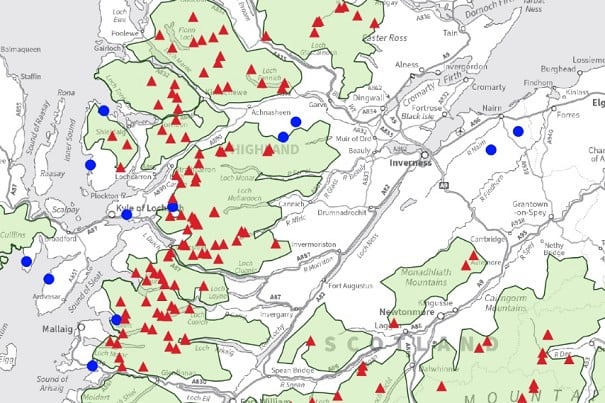
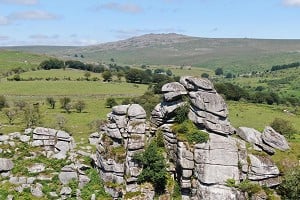
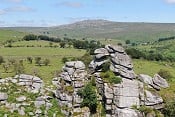






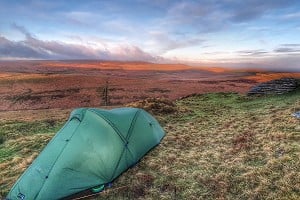

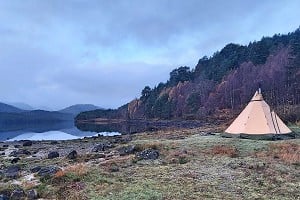
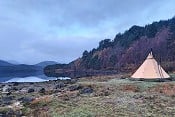




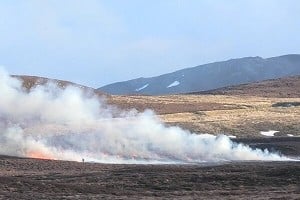
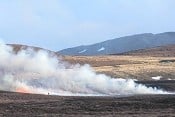
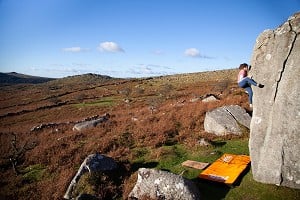
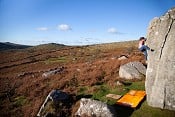
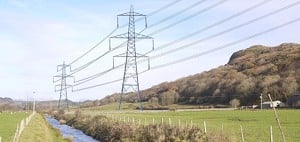

Comments
How do they think they will reduce anti-social behaviour by condensing the area that people are allowed to wild-camp in? The same number of people will go to Dartmoor to wild camp, they'll just be less spread-out.
I assume what they really mean is that by restricting the anti-social behaviour to hotspots then they won't have such extensive clean up requirements as they won't need to cover such a large area.
The main anti-social behaviour I expect they are talking about is leaving litter as this appears to be the actual and only problem with "wild camping".
I don't the offenders will really care about where they are "allowed" to wild camp, they'll go where want
And fires...
I think it's really important not to introduce long terms laws to deal with a short term (covid related) problem. The last 18 months have seen people camping out in all sorts of places that would never see obvious campers. 99% of these will evaporate once (if) we approach a greater degree of normality.